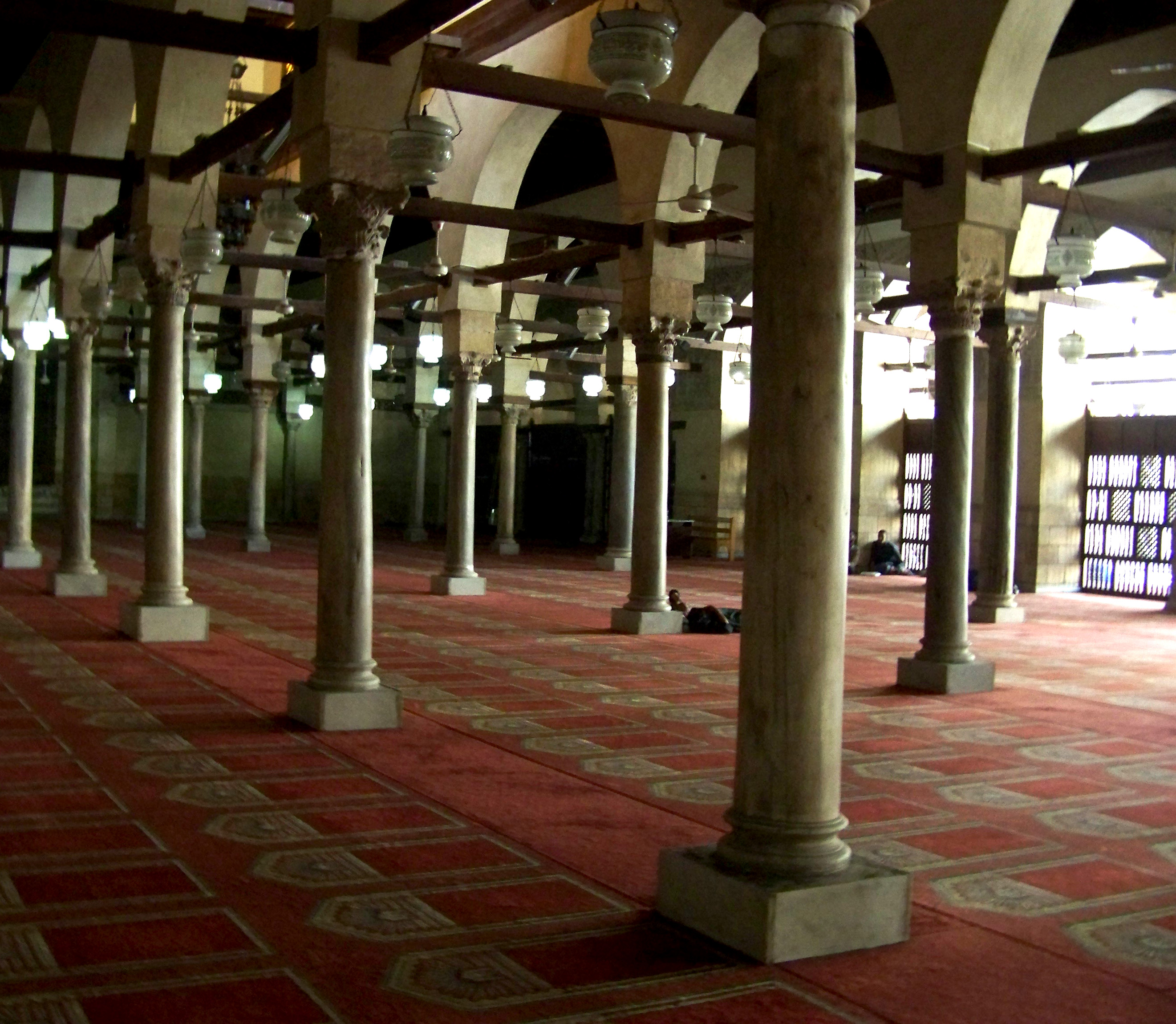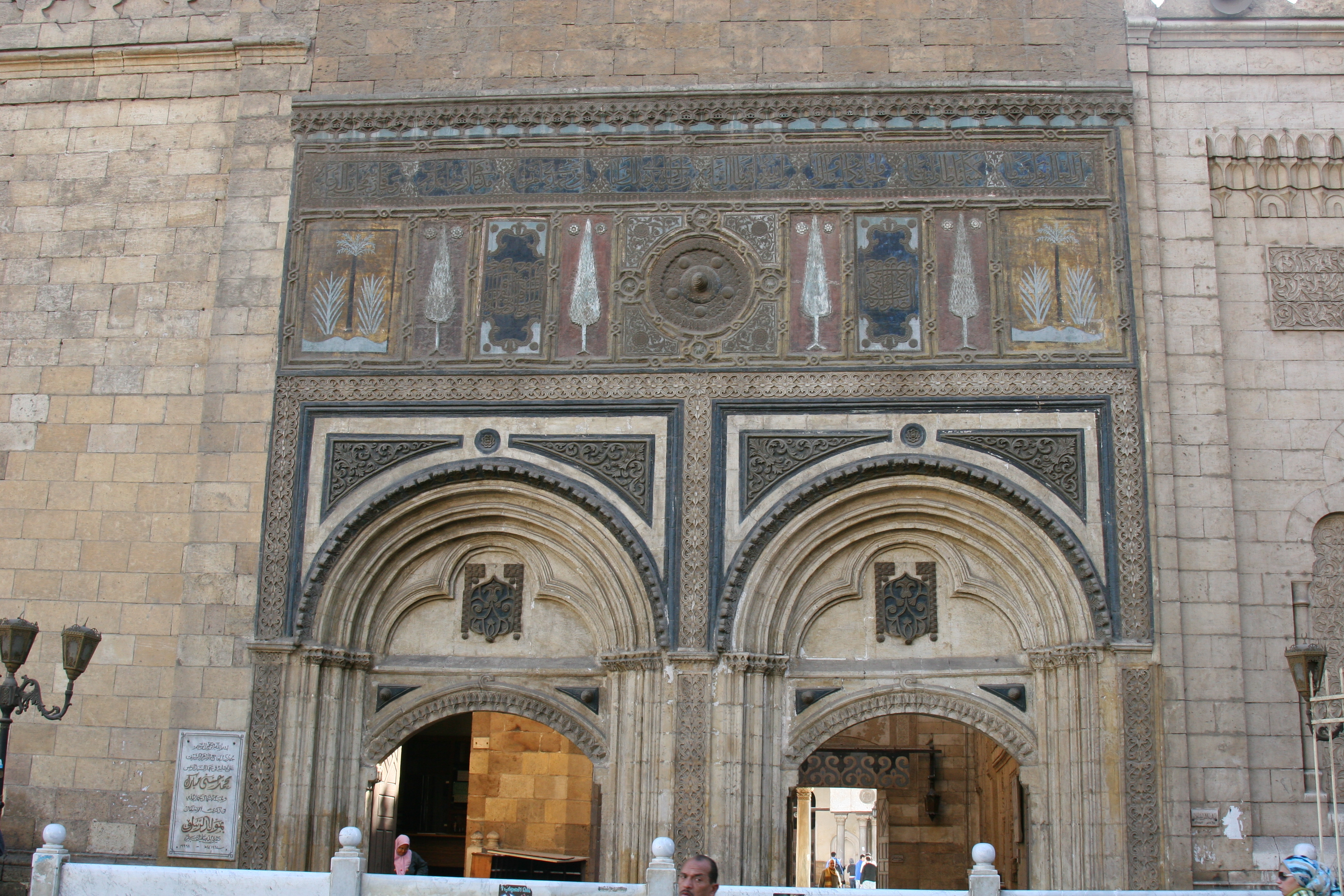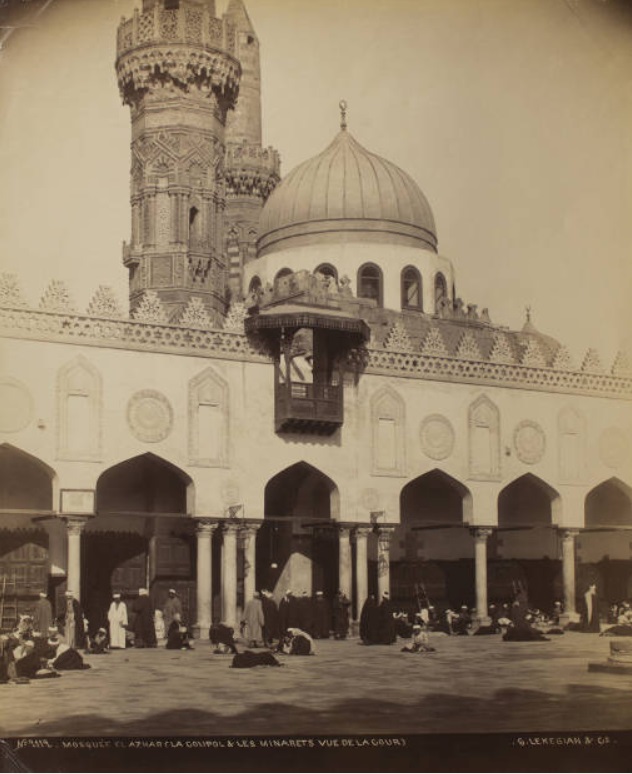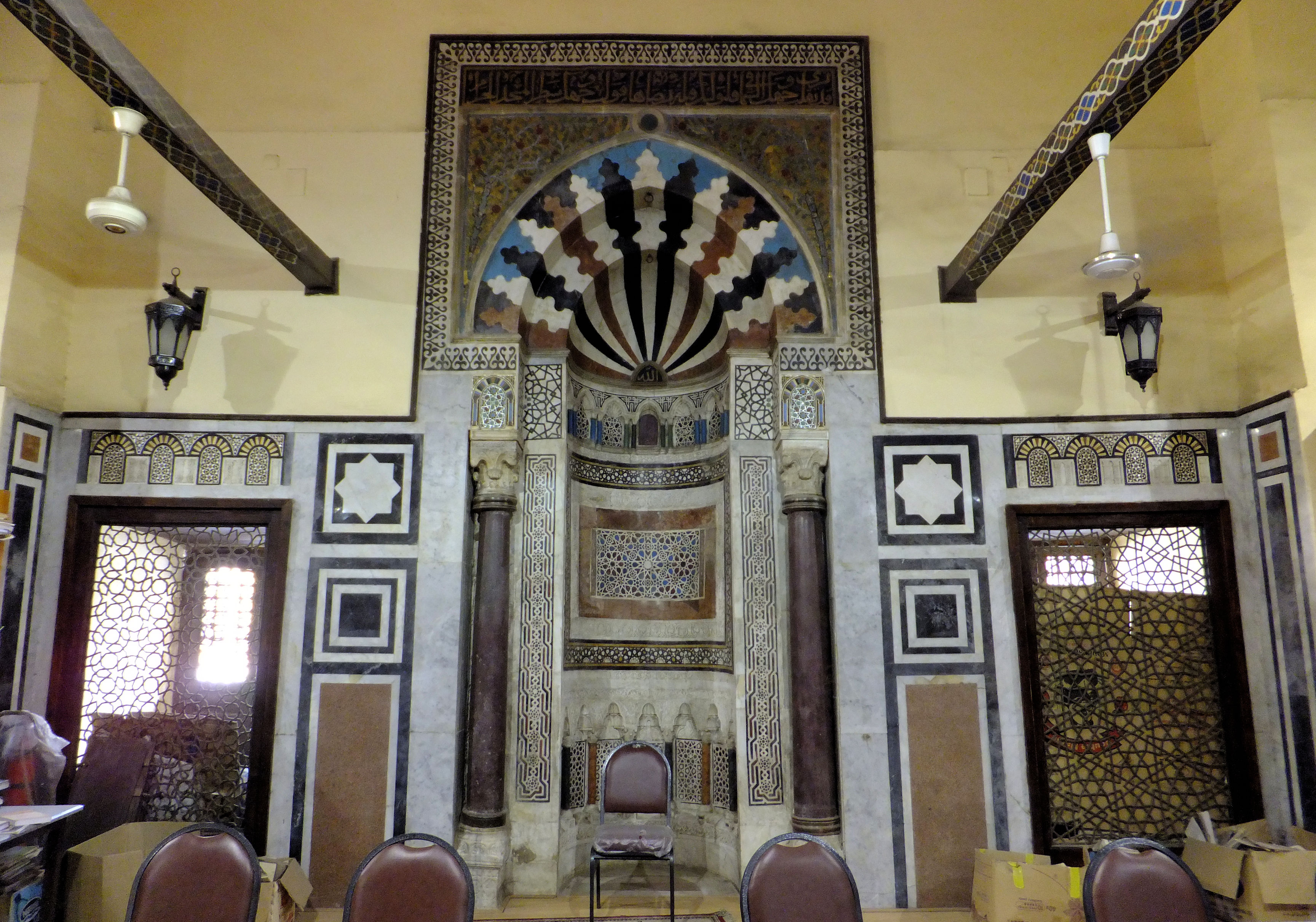Jāmiʻ al-Azhar
Enlarge text Shrink text- Al-Azhar : the mosque and university, 1950
- BL database, 5 Oct. 2006(hdg.: Azhar (Mosque : Cairo, Egypt))
Al-Azhar Mosque (Arabic: الجامع الأزهر, romanized: al-Jāmiʿ al-ʾAzhar, lit. 'The Resplendent Congregational Mosque', Egyptian Arabic: جامع الأزهر, romanized: Gāmiʿ el-ʾazhar), known in Egypt simply as al-Azhar, is a mosque in Cairo, Egypt in the historic Islamic core of the city. Commissioned as the new capital of the Fatimid Caliphate in 970, it was the first mosque established in a city that eventually earned the nickname "the City of a Thousand Minarets". Its name is usually thought to derive from az-Zahrāʾ (lit. 'the shining one'), a title given to Fatimah, the daughter of Muhammad. After its dedication in 972, and with the hiring by mosque authorities of 35 scholars in 989, the mosque slowly developed into what it is today. The affiliated Al-Azhar University is the second oldest continuously run one in the world after Al-Qarawiyyin in Idrisid Fes. It has long been regarded as the foremost institution in the Islamic world for the study of Sunni theology and sharia, or Islamic law. In 1961, the university, integrated within the mosque as part of a mosque school since its inception, was nationalized and officially designated an independent university, Al-Azhar Al-Sharif, following the Egyptian Revolution of 1952. Over the course of its over a millennium-long history, the mosque has been alternately neglected and highly regarded. Because it was founded as a Shiite Ismaili institution, Saladin and the Sunni Ayyubid dynasty that he founded shunned al-Azhar, removing its status as a congregational mosque and denying stipends to students and teachers at its school. These moves were reversed under the Mamluk Sultanate, under whose rule numerous expansions and renovations took place. Later rulers of Egypt showed differing degrees of deference to the mosque and provided widely varying levels of financial assistance, both to the school and to the upkeep of the mosque. Today, al-Azhar remains a deeply influential institution in Egyptian society that is highly revered in the Sunni Muslim world and a symbol of Islamic Egypt.
Read more on Wikipedia >
 Corporate Body
Corporate Body






















